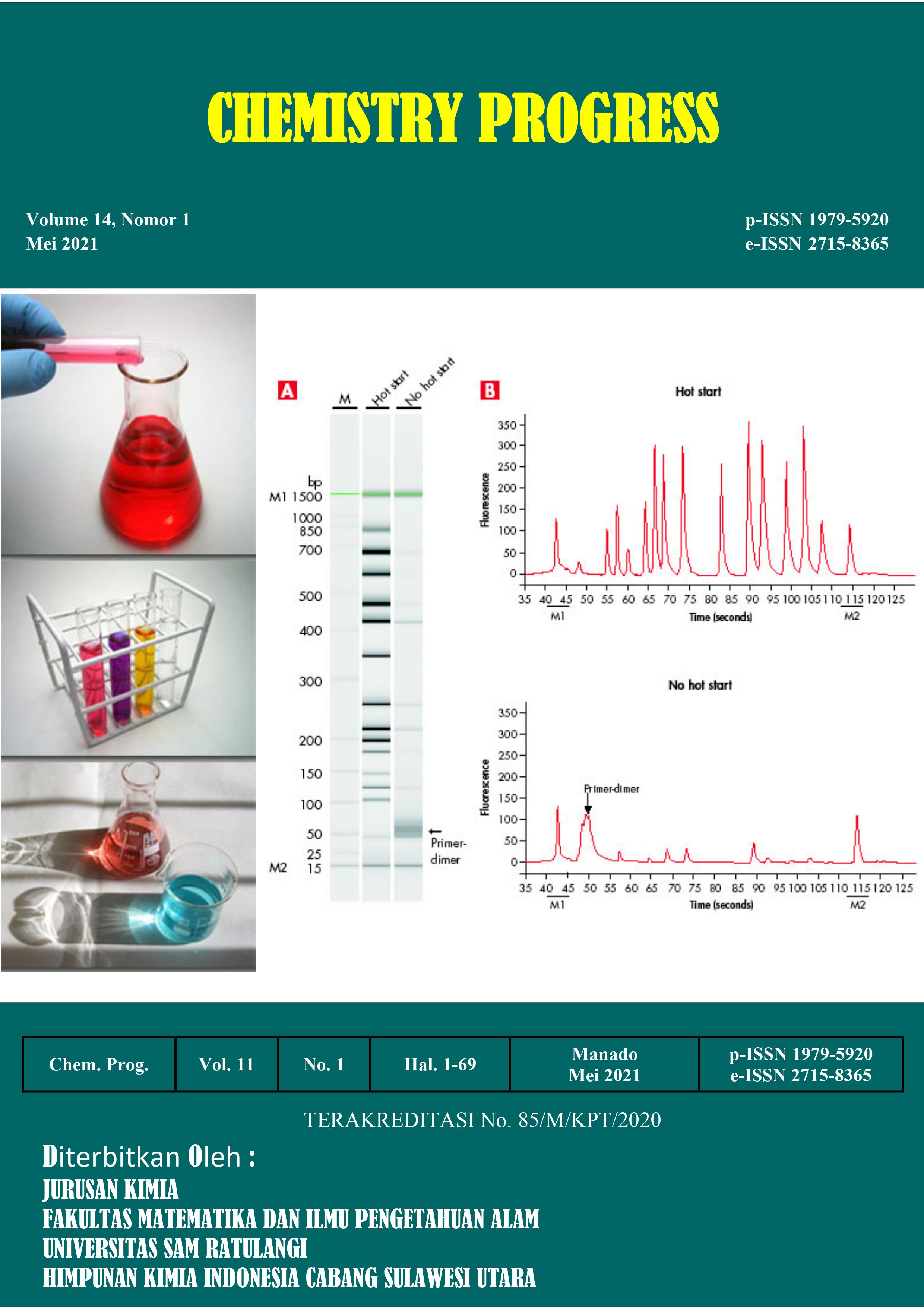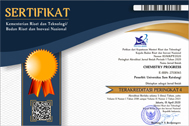POLA INFRAMERAH ARANG TEMPURUNG KELAPA HASIL PEMURNIAN MENGGUNAKAN ASAM
DOI:
https://doi.org/10.35799/cp.14.2.2021.37191Abstract
Kelapa merupakan salah satu tanaman industri yang memegang peranan penting dalam perekonomian Indonesia. Bagian kelapa yang memiliki nilai ekonomis yang tinggi adalah tempurung kelapa. Penelitian ini bertujuan untuk mengkaji pola spektrum inframerah arang hasil pemurnian menggunakan asam klorida, asam asetat, dan asam nitrat. Tempurung kelapa dipirolisis pada suhu ± 300oC selama 2 jam selanjutnya dilakukan pemurnian dengan tiga jenis pelarut yaitu HCl, CH3COOH, dan HNO3. Karakter masing-masing arang hasil pemurnian tersebut dianalisis menggunakan Fourier Transform Infrared (FTIR). Spektrum FTIR menunjukkan puncak pita serapan dengan peningkatan intensitas yang signifikan menggunakan asam klorida (HCl). Karakteristik struktur arang karbon teridentifikasi dengan munculnya gugus fungsi C=O dan C=C.
ABSTRACT
Â
Coconut is one of the industrial plants that plays an important role in the Indonesian economy. The part of coconut that has a high economic value is the coconut shell. This study was aimed to examine the infrared spectrum pattern of charcoal purified using hydrochloric acid, acetic acid, and nitric acid. Coconut shell was pyrolyzed at a temperature of ± 300oC for 2 hours and then purified with three types of solvents, namely HCl, CH3COOH, and HNO3. The character of each refined charcoal was analyzed using Fourier Transform Infrared (FTIR). The FTIR spectrum showed the absorption band peaks with a significant increase in intensity using hydrochloric acid (HCl). The structural characteristics of carbon charcoal were identified by the appearance of C=O and C=C functional groups.













